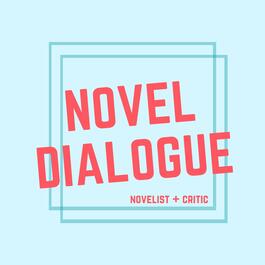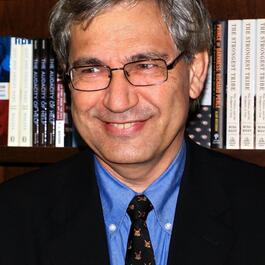
Novel Dialogue
Novel Dialogue: where unlikely conversation partners come together to discuss the making of novels and what to make of them. What makes us special? Critics and novelists in conversation. Breaking down the boundaries between critical, creative, and just plain quirky, Novel Dialogue’s approach is wide-ranging and unconventional. Ever wondered what Jennifer Egan thinks of TikTok, how Ruth Ozeki honed her craft working on the movie Mutant Hunt, or if Colm Tóibín will ever write a novel about an openly gay novelist? Join us for lively conversations hosted by scholars who admire and write about the novelists that help shape our literary culture. Learn more about Novel Dialogue here.
Show episodes
Álvaro Enrigue and critic Maia Gil’Adí begin their conversation considering translation as a living process, one that is internal to the novel form. Álvaro, author of the trippy You Dreamed of Empires (Riverhead, 2024), explains how the opening letter to his translator Natasha mirrors the letter to his editor, Teresa,
In an essay about her recent book Searches (Pantheon, 2025), a genre-bending chronicle of the deeply personal ways we use the internet and the uncanny ways it uses us, Vauhini Vara admits that several reviewers seemed to mistake her engagement with ChatGPT as an uncritical embrace of large language models. Enter Aarthi
Fernanda Trías’s Pink Slime (Scribner, 2024) was first published in Spanish in October 2020, several months into a global pandemic that had bent our world into something uncannily similar to the one imagined in the Uruguayan writer’s fourth novel. Here, an environmental disaster that begins as red algae bloom in the oc

9.3 Planetary Boundaries are Non-Negotiable: Kim Stanley Robinson and Elizabeth Carolyn Miller (JP)
In Season 9, Novel Dialogue set out to find the Venn diagram intersection of tech and fiction—only to realize that Kim Stanley Robinson had staked his claim on the territory decades ago. With influential series on California, on the terraforming of Mars, and on human civilization as reshaped by rising tides, KSR has es
What work can genre do today? And can the genre system become more than a method of reductive containment and market segmentation—can it be a generative source of imaginative chaos? Few are as qualified to address these questions as Lauren Beukes, whose simultaneous embrace of genres from science fiction to crime to ho
It’s a bit surprising to hear a writer known for building worlds that incorporate deep historical research and elaborate technological details extol the virtues of play, but Ken Liu tells critic Rose Casey and host Sarah Wasserman that if “your idea of heaven doesn’t include play, then I’m not sure it’s a heaven people
